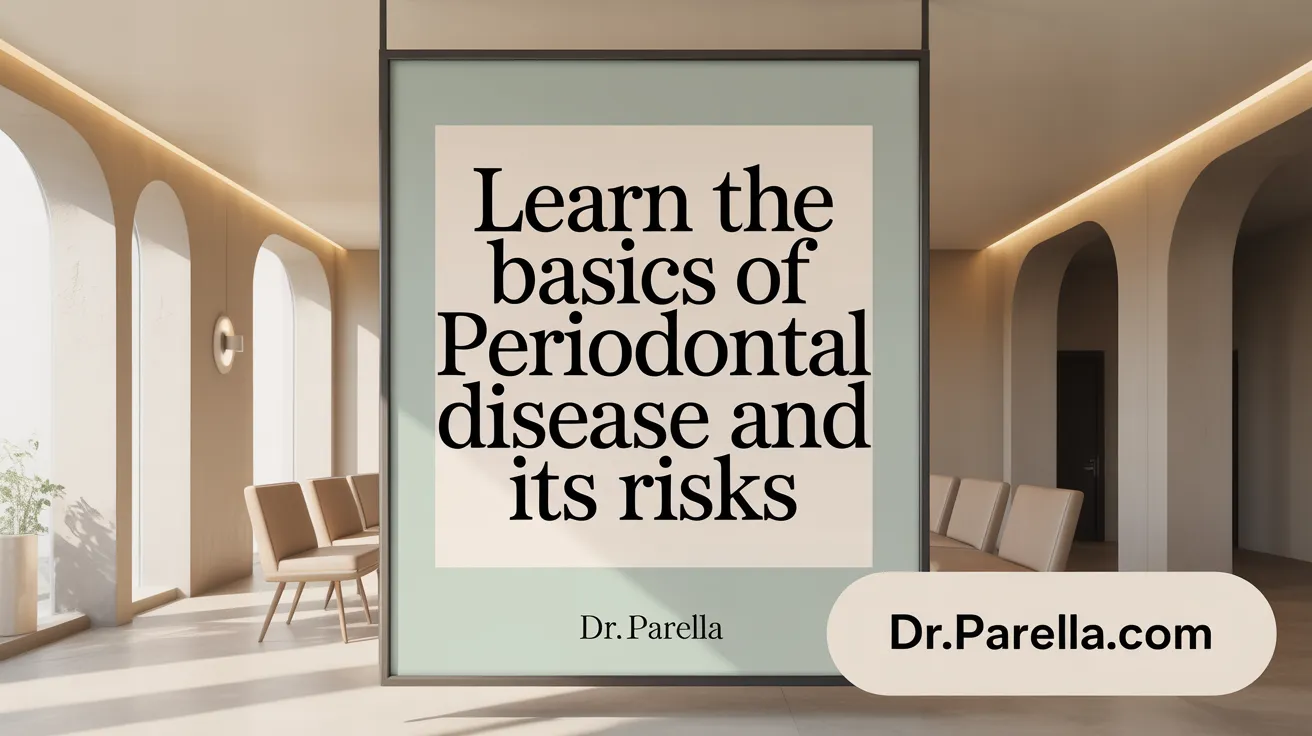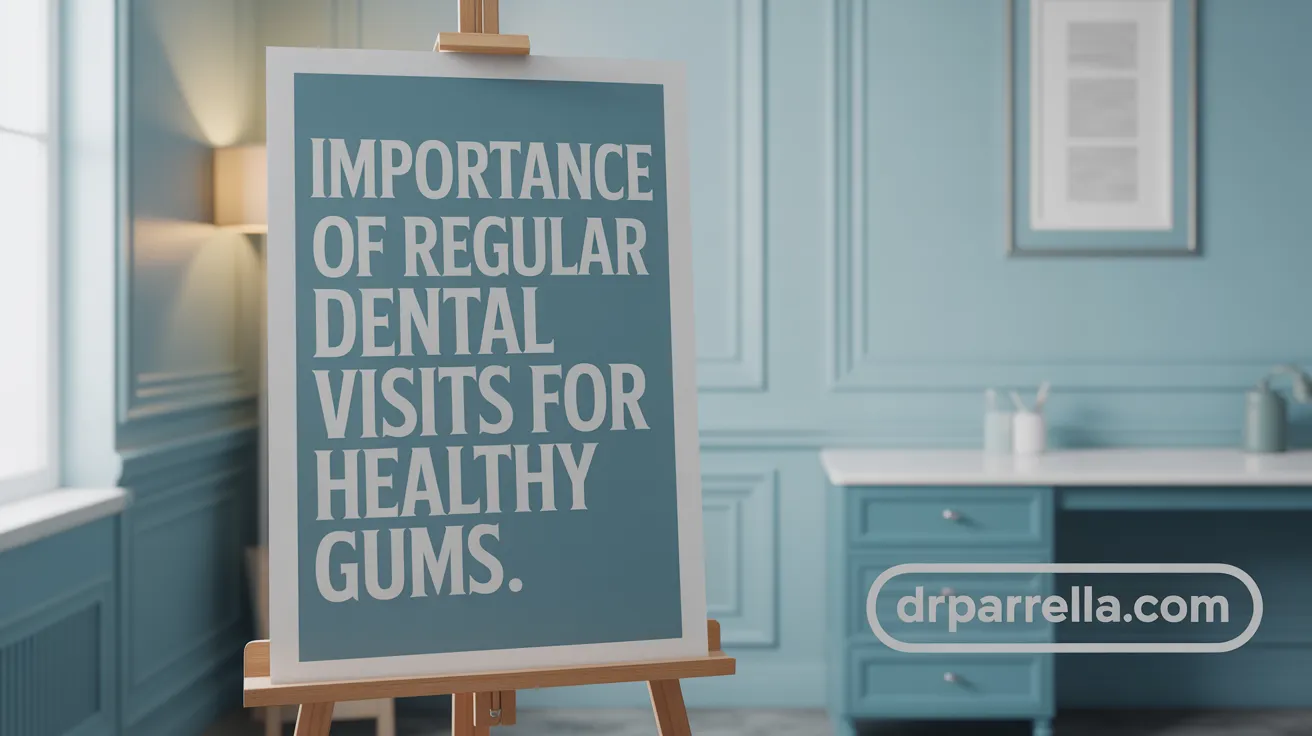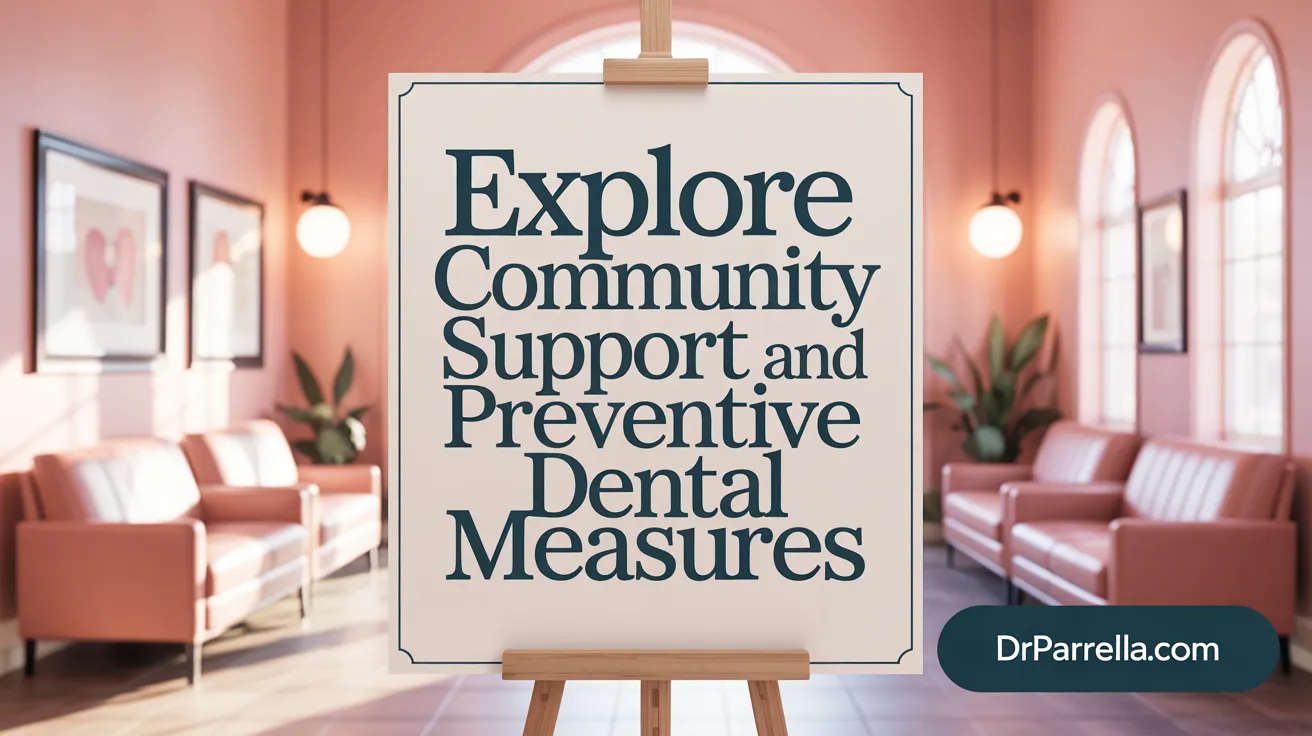The Importance of Gum Health for Overall Well-Being
Why Gum Health Matters for Your Overall Health
Healthy gums are crucial not only for maintaining a bright smile but also for supporting your overall well-being. Gum disease, also known as periodontal disease, affects nearly half of adults over the age of 30, making it a widespread health concern.
Understanding Gum Disease and Its Progression
Gum disease starts with plaque buildup on the teeth, which irritates the gums and causes a condition called gingivitis—marked by red, swollen, and bleeding gums. Gingivitis is reversible with good oral hygiene, but if untreated, it can progress to periodontitis, a more severe infection. Periodontitis causes gum recession, loosening of teeth, and can lead to tooth loss.
Impact Beyond the Mouth
Beyond damaging oral tissues, gum disease has been linked to serious systemic conditions such as heart disease and diabetes. This connection highlights the importance of maintaining healthy gums as a part of overall health care through proper brushing, flossing, regular dental visits, and lifestyle choices like quitting smoking and eating a nutritious diet rich in vitamin C and calcium.
Taking care of your gums protects not only your smile but your general health too.
Understanding Periodontal Disease and Its Risks

What is Periodontal Disease?
Periodontal disease, also known as gum disease, is an infection of the tissues surrounding and supporting the teeth. It begins with the buildup of plaque, a sticky film of bacteria on the teeth.
What Are the Stages of Periodontal Disease?
The early stage is called gingivitis. It causes red, swollen, and bleeding gums but is reversible with proper care. If left untreated, gingivitis can progress to periodontitis, a more serious and chronic stage. Periodontitis causes irreversible damage, including gum recession, formation of periodontal pockets, bone loss, and can ultimately lead to loose teeth or tooth loss.
What Are the Symptoms and Warning Signs?
Watch for:
- Gums that bleed easily,
- Redness or swelling of gums,
- Gum recession and gums pulling away from teeth,
- Persistent bad breath,
- Loose or sensitive teeth,
- Pain when chewing.
Early detection of these signs is crucial for effective treatment.
How Common is Gum Disease?
Gum disease affects a large portion of adults. Approximately 40-47% of U.S. adults over age 30 have some form of periodontitis, with prevalence increasing with age. Among adults aged 65 and older, about 60% are affected. Around 8% suffer from severe gum disease.
What Are the Systemic Health Risks?
Periodontal disease is linked to serious health problems such as heart disease, diabetes, stroke, and even dementia including Alzheimer’s disease. The infection and inflammation in gums can allow bacteria to enter the bloodstream, contributing to systemic inflammation and periodontal disease and increasing risk for these conditions.
Understanding these risks highlights the importance of good oral hygiene, regular dental checkups, and early treatment of gum disease to protect both oral and overall health.
Daily Oral Hygiene Habits to Protect Your Gums

Proper brushing techniques including BASS method
Brushing your teeth twice daily using the BASS Brushing Technique effectively removes plaque along and under the gum line—the primary cause of gum disease. The BASS method involves holding a soft-bristled toothbrush at a 45-degree angle to the gums, using small circular motions to gently clean without damaging tissue.
Importance of twice-daily brushing and flossing
Brushing twice a day for two minutes and flossing daily are crucial to maintain healthy gums. Flossing reaches areas between teeth where brushes can't remove plaque buildup, preventing gingivitis and periodontitis.
Use of soft-bristled toothbrushes and timely replacement
Use a soft-bristled toothbrush to protect your delicate gum tissue while effectively cleaning your teeth. Replace your toothbrush every three to four months or sooner if bristles are frayed to ensure optimal cleaning performance. This practice is part of daily oral hygiene practices.
Role of antibacterial ADA-approved mouthwash
Adding an American Dental Association (ADA)-approved antibacterial mouthwash to your routine can reduce bacteria and plaque, lowering gum disease risk. Mouthwash is a helpful supplement, but it should never replace thorough brushing and flossing.
Rinsing after meals when brushing isn't feasible
If you cannot brush after meals, rinsing your mouth after meals with water helps remove food particles and reduces plaque formation. This simple habit supports gum health between brushing sessions.
Incorporating these daily oral hygiene practices consistently can help protect your gums, reduce the risk of periodontal disease, and support your overall oral health.
Lifestyle and Dietary Factors in Gum Disease Prevention

How Does Smoking and Tobacco Use Affect Gum Health?
Smoking and tobacco use are major risk factors for gum disease. They weaken the immune system, making it harder for the body to fight off infections that cause periodontal disease. Smokers are more likely to experience plaque buildup and have a higher prevalence of periodontitis, leading to gum recession and tooth loss.
What Are the Benefits of Quitting Smoking for Gum Health?
Quitting smoking significantly reduces the risk of developing gum disease. It improves blood flow to the gums, boosts the immune response, and aids in healing damaged gum tissue. Former smokers have better outcomes in gum disease treatment and a lower chance of disease progression.
How Does a Balanced Diet Support Gum Health?
Eating a diet rich in vitamin C and calcium plays a vital role in maintaining healthy gums. Vitamin C is essential for gum tissue repair and helps stabilize connective tissue, while calcium strengthens teeth and bone. Incorporating citrus fruits, leafy greens, and dairy products supports gum health.
Why Should Sugary Foods and Beverages Be Avoided?
Sugary foods encourage the growth of harmful bacteria in plaque, increasing the risk of gum disease. Reducing consumption of sweets and sugary drinks limits bacterial growth and helps prevent inflammation and gum infections.
How Does Stress Influence Gum Disease?
Stress impairs immune function, making the body more susceptible to infections like gum disease. Managing stress through relaxation techniques and healthy lifestyle choices helps support immune health and reduces the likelihood of periodontal infections.
What About Managing Medication Side Effects Like Dry Mouth?
Certain medications can cause dry mouth, which reduces saliva that naturally protects gums. Managing dry mouth by staying hydrated, avoiding tobacco and alcohol, and consulting a dentist about possible remedies helps maintain optimal gum health.
The Role of Professional Dental Care in Maintaining Gum Health

Importance of Routine Dental Checkups Every Six Months
Regular dental visits every 6 months are essential to maintain healthy gums and overall oral health. These appointments allow dentists to identify early signs of gum disease, such as gingivitis, which is reversible with timely care. Consistent checkups help prevent the progression to more severe stages like periodontitis.
Professional Cleanings: Scaling and Root Planing
During dental visits, professional cleanings remove plaque and tartar buildup that daily brushing and flossing cannot eliminate. Scaling targets plaque and tartar above and below the gum line, while root planing smooths the root surfaces, promoting gum reattachment and healing. These treatments are crucial for preventing and managing gum infections.
Early Detection and Monitoring of Gum Health and Pocket Depths
Dentists measure pocket depths around teeth to monitor gum health. Increased depths can indicate the development of periodontitis, necessitating early intervention. Early detection allows for less invasive treatments and better outcomes for gum and dental health.
Periodontal Maintenance Schedules for At-Risk Patients
Patients with a history of gum disease, smokers, or those with systemic conditions like diabetes benefit from periodontal maintenance every 3 to 4 months. This schedule helps prevent disease progression and tooth loss by ensuring plaque and tartar are regularly controlled through professional cleaning.
Treatment Options for Various Stages of Gum Disease
Treatment ranges from improved at-home care and routine cleanings for gingivitis to deep cleaning procedures like scaling and root planing for early periodontitis. Advanced cases may require antibiotics, laser therapy, or gum surgery. Early and tailored treatment significantly reduces the risk of tooth loss and supports long-term oral health.
Additional Preventive Measures and Community Dental Support

How Can Orthodontic Treatments Help Prevent Gum Disease?
Teeth that are misaligned or crowded can make thorough cleaning difficult, allowing plaque to accumulate and increase the risk of gum disease prevention tips. Orthodontic treatments, such as braces or aligners, help straighten teeth, making them easier to clean and reducing the chance of plaque buildup. This preventive step supports orthodontic treatments and gum health and a lower risk of periodontal conditions.
Why Manage Teeth Grinding With Night Guards?
Teeth grinding, or bruxism, can wear down tooth enamel and cause gum recession, which may contribute to periodontal problems. Wearing a custom-fitted night guard protects teeth and gums during sleep by cushioning the teeth from excessive forces, helping to maintain oral health. This aligns with managing teeth grinding and night guards for bruxism.
What Role Does Hydration Play in Gum Health?
Drinking plenty of water throughout the day helps wash away food particles and bacteria that can cause plaque formation. Staying hydrated also promotes saliva production, which naturally fights harmful bacteria and keeps the mouth healthy. Hydration is an essential factor in balanced diet for gum health and hydration and saliva production.
How Do Community-Based Dental Programs Improve Accessibility?
Access to affordable dental care is vital for preventing and managing gum disease. Community dental clinics, dental school programs, and support organizations offer dental services and education to local families. These programs often provide care regardless of income, helping to reduce barriers and encourage regular dental visits as part of affordable dental care resources.
How Is Personalized Patient Education Important?
In Somerville, MA, Dr. Anthony P. Parrella emphasizes compassionate, patient-centered care that includes educating individuals about proper oral hygiene techniques and preventive strategies. This supportive approach builds trust and motivates patients to maintain daily habits that protect gum health. Personalizing care to patients' needs ensures better long-term oral health outcomes and fosters community wellness.
Prioritize Gum Care to Avoid Periodontal Therapy
Essential Steps to Prevent Gum Disease
Maintaining healthy gums starts with daily habits: brush your teeth twice a day using proper technique and floss daily to remove plaque. Use an ADA-approved antibacterial mouthwash and rinse with water after meals to reduce bacteria. A balanced diet rich in vitamin C and calcium supports gum health, while quitting smoking and managing stress contribute significantly.
Importance of Regular Professional Care
Routine dental visits every six months enable early detection and removal of tartar buildup, preventing gingivitis from progressing to periodontitis. Professional cleanings like scaling and root planing keep gums firm and supportive.
Benefits of Acting Early
Early intervention upon noticing signs like bleeding gums or bad breath helps maintain your natural smile and supports overall health by reducing risks linked to heart disease and diabetes. Consistent care fosters confidence and long-term oral wellness.
